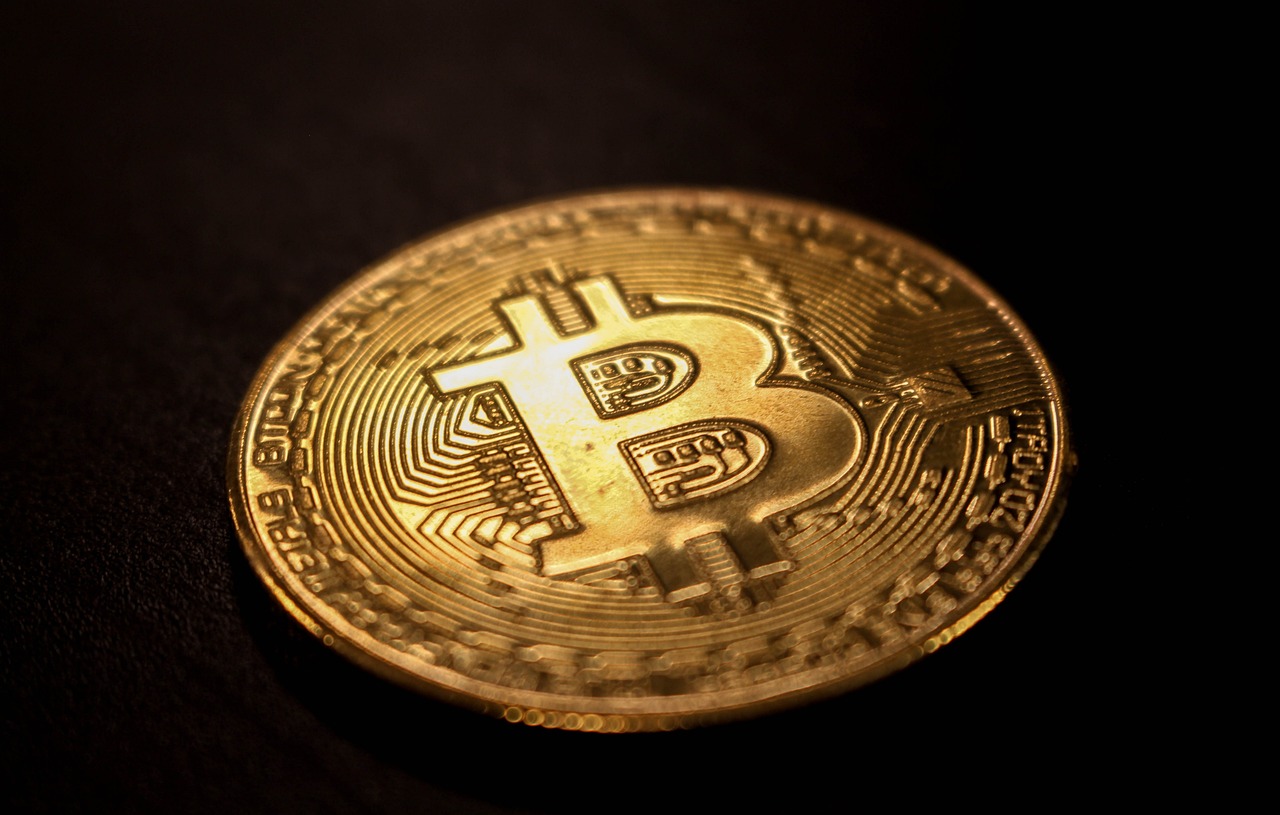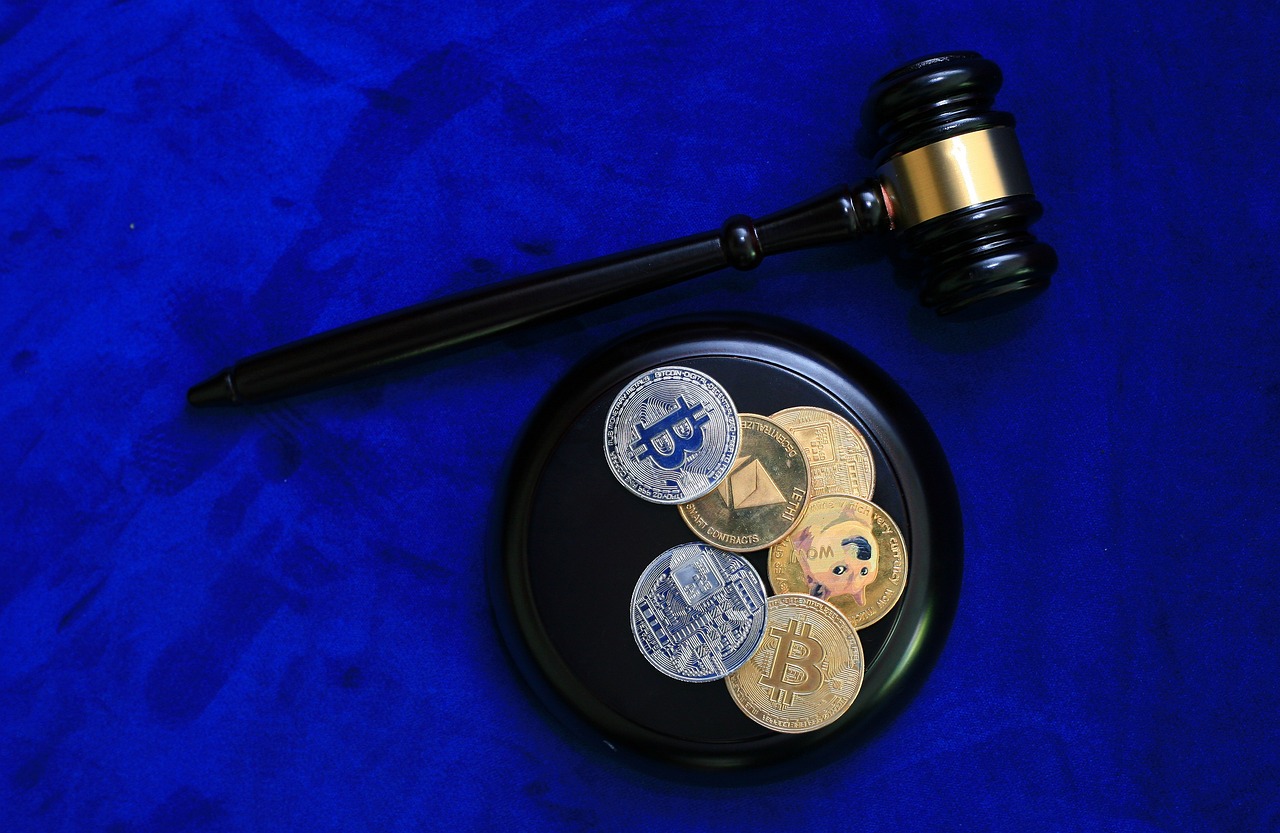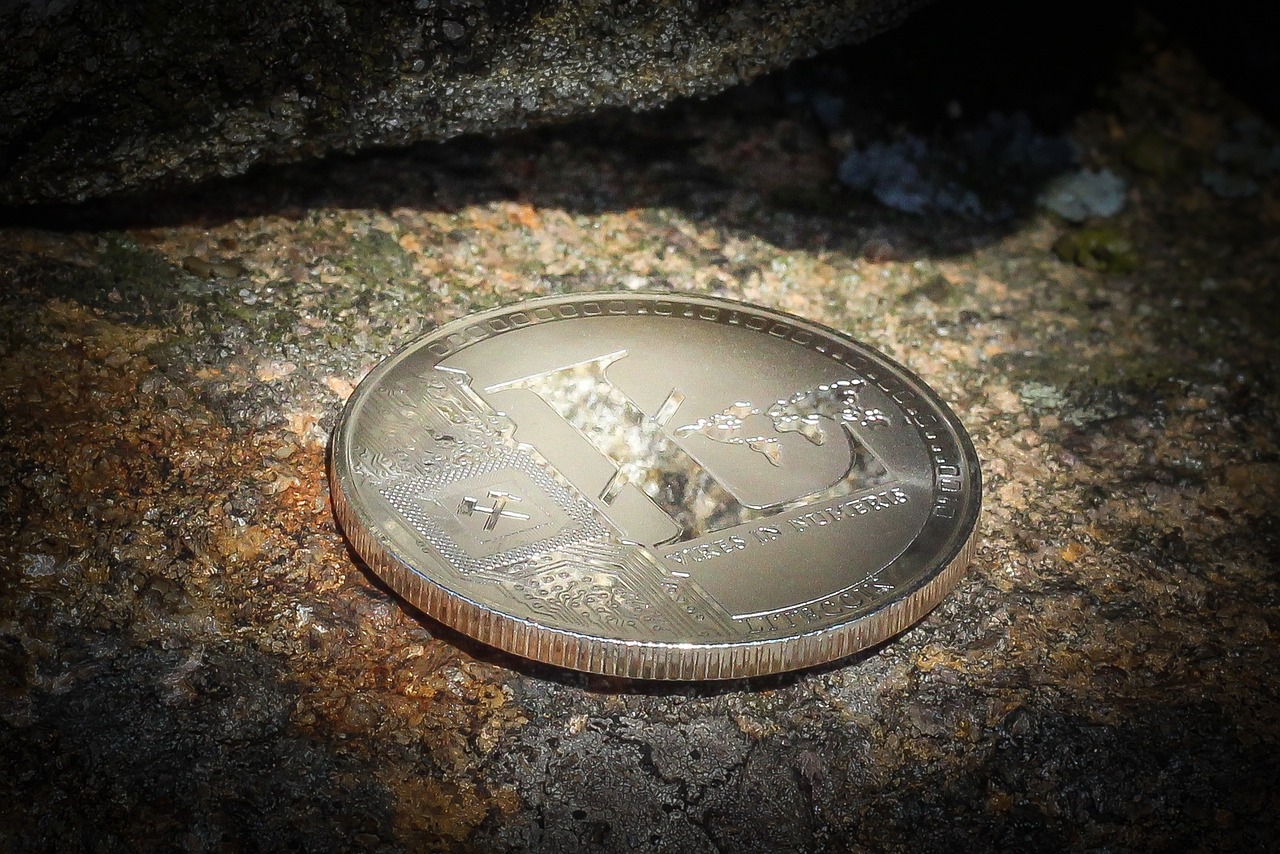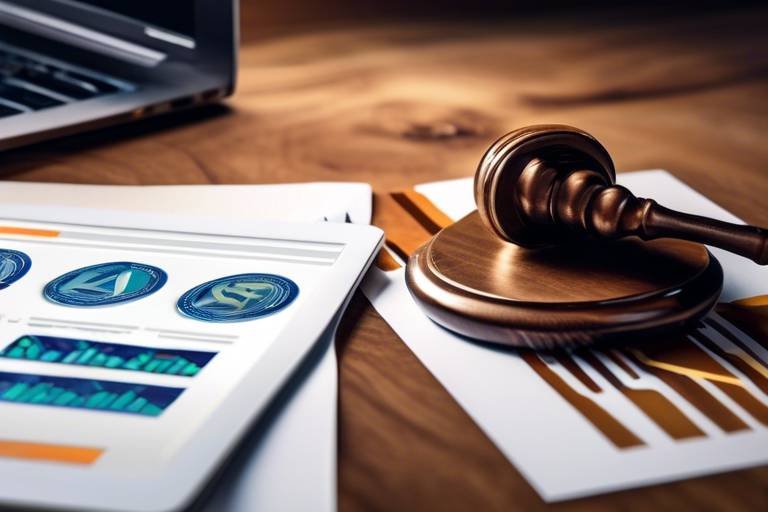Understanding the Legal Risks of Cryptocurrency Derivatives
The world of cryptocurrency derivatives is like a double-edged sword—exciting yet perilous. As the market evolves, so too does the legal landscape surrounding it. For investors and traders, understanding these legal risks is crucial. With the rise of digital currencies, derivatives have emerged as popular financial instruments that allow for speculation and hedging against price movements. However, navigating this uncharted territory requires a solid grasp of the associated legal implications.
Imagine stepping into a vast ocean without knowing how to swim. That’s what trading cryptocurrency derivatives can feel like without proper legal knowledge. The stakes are high, and the waters can be treacherous. From regulatory frameworks that vary by jurisdiction to the unique characteristics of different types of derivatives, the complexities can be overwhelming. In this article, we aim to shed light on these challenges and equip you with the insights needed to make informed decisions.
With the rapid pace of innovation in the cryptocurrency space, regulatory bodies worldwide are scrambling to catch up. Each country has its own approach, leading to a patchwork of regulations that can confuse even seasoned traders. Some governments embrace cryptocurrency derivatives, while others impose strict regulations or outright bans. This inconsistency can create significant risks for investors who may inadvertently violate laws due to a lack of clarity.
In addition to regulatory uncertainties, the various types of cryptocurrency derivatives—such as futures, options, and swaps—each come with their own set of legal considerations. Understanding how these instruments work and the potential risks involved is essential for anyone looking to participate in this market. For instance, futures contracts can lead to significant losses if not managed properly, and options contracts require a nuanced understanding of market behavior.
As we delve deeper into the intricacies of cryptocurrency derivatives, we will explore the regulatory landscape, the types of derivatives available, and the specific legal risks investors face. By the end of this article, you’ll have a clearer picture of how to navigate this complex environment, armed with best practices for compliance and risk mitigation.
The regulatory environment for cryptocurrency derivatives is a dynamic and evolving landscape. Countries around the globe are taking different stances on how to handle these financial instruments. Some nations, such as the United States and the European Union, are working towards comprehensive regulatory frameworks that aim to protect investors while fostering innovation. Others, like China, have imposed strict bans on cryptocurrency trading altogether.
Understanding the regulatory landscape is not just about knowing the laws; it's about staying ahead of the curve. As regulations continue to evolve, so too must the strategies employed by traders and investors. The following table summarizes the regulatory approaches of several key jurisdictions:
| Country | Regulatory Approach |
|---|---|
| United States | Mixed; Some states have strict regulations, while others are more lenient. |
| European Union | Working towards unified regulations; MiCA legislation proposed. |
| China | Strict bans on trading and ICOs. |
| Japan | Progressive regulations; recognizes cryptocurrencies as legal tender. |
As you can see, the regulatory landscape is anything but uniform. This inconsistency can create challenges for investors, especially when trading across borders. It’s essential to stay informed and consult legal experts when necessary to ensure compliance with local laws.
Cryptocurrency derivatives come in various forms, each with unique characteristics and risks. Understanding these differences is vital for making informed trading decisions. The most common types of derivatives include:
- Futures Contracts: These are agreements to buy or sell a specific amount of cryptocurrency at a predetermined price on a future date.
- Options Contracts: These give the holder the right, but not the obligation, to buy or sell a cryptocurrency at a specified price before a certain date.
- Swaps: These are contracts in which two parties exchange cash flows or liabilities from different financial instruments.
Each type of derivative carries its own set of legal implications and risks. For instance, futures contracts often require traders to maintain margin accounts, which can lead to significant legal and financial consequences if not managed properly. Similarly, options trading involves complexities that demand a thorough understanding of market dynamics to avoid pitfalls.
Q: What are the main legal risks associated with cryptocurrency derivatives?
A: Legal risks include regulatory compliance issues, fraud, market manipulation, and the potential for disputes arising from contract terms.
Q: How can I protect myself from legal risks when trading cryptocurrency derivatives?
A: Staying informed about the regulatory landscape, understanding the types of derivatives you are trading, and consulting with legal experts can help mitigate risks.
Q: Are there specific regulations for futures and options contracts?
A: Yes, regulations can vary significantly by jurisdiction. It’s crucial to understand the specific laws governing these contracts in your region.

The Regulatory Landscape
The world of cryptocurrency derivatives is a thrilling yet complicated space, and understanding the regulatory landscape is crucial for anyone looking to dive in. As governments and regulatory bodies scramble to catch up with the rapid evolution of cryptocurrencies, the rules governing these financial instruments vary significantly across the globe. This inconsistency can create a minefield of legal risks for traders and investors alike. So, what does the regulatory environment look like today?
In the United States, for instance, the Commodity Futures Trading Commission (CFTC) has taken a proactive stance, classifying certain cryptocurrencies as commodities. This means that futures and derivatives based on these assets fall under their jurisdiction. Conversely, the Securities and Exchange Commission (SEC) has been more cautious, focusing on whether certain tokens qualify as securities, thus subjecting them to a different set of regulations. This duality can often lead to confusion among market participants.
Across the Atlantic, the European Union is working towards a more unified regulatory framework through the Markets in Crypto-Assets (MiCA) proposal. This initiative aims to create a comprehensive set of rules for all crypto-related activities, including derivatives. However, until this framework is fully implemented, individual member states may continue to enforce their own regulations, leading to a patchwork of rules that traders must navigate.
Meanwhile, in Asia, countries like Japan and Singapore have established relatively clear regulatory frameworks for cryptocurrency derivatives. Japan's Financial Services Agency (FSA) has been at the forefront of regulating crypto exchanges and derivatives, ensuring that they comply with strict guidelines to protect investors. Singapore, on the other hand, has adopted a more progressive approach, encouraging innovation while maintaining a focus on consumer protection.
However, not all jurisdictions are as welcoming. Some countries, like China, have implemented outright bans on cryptocurrency trading and derivatives. This creates a challenging environment for traders who may be unaware of the legal implications of their actions. The risks are not just limited to penalties; they can also include the loss of investments and legal repercussions.
To summarize, the regulatory landscape for cryptocurrency derivatives is anything but straightforward. Here’s a quick overview of key jurisdictions and their approaches:
| Country | Regulatory Body | Approach |
|---|---|---|
| United States | CFTC, SEC | Proactive but fragmented |
| European Union | Various, MiCA proposal | Moving towards unified regulation |
| Japan | Financial Services Agency (FSA) | Clear and strict regulations |
| Singapore | Monetary Authority of Singapore (MAS) | Progressive and encouraging |
| China | People's Bank of China | Outright bans |
As the landscape continues to evolve, it’s essential for traders and investors to stay informed about the legal frameworks that govern their activities. Ignorance is not bliss in the realm of cryptocurrency derivatives; it can lead to severe consequences. In the end, understanding the regulatory environment is not just about compliance; it’s about making informed decisions that safeguard your investments.
- What are cryptocurrency derivatives? Cryptocurrency derivatives are financial contracts whose value is derived from the price of underlying cryptocurrencies.
- Why is regulation important? Regulation helps protect investors from fraud, market manipulation, and ensures that trading practices are fair and transparent.
- Which regulatory body oversees cryptocurrency derivatives in the U.S.? In the U.S., both the CFTC and SEC have roles in regulating cryptocurrency derivatives.
- Are cryptocurrency derivatives legal everywhere? No, the legality of cryptocurrency derivatives varies by country, with some nations imposing strict regulations or outright bans.

Types of Cryptocurrency Derivatives
When diving into the world of cryptocurrency derivatives, it's essential to understand the various forms they can take. Each type offers unique characteristics and risks that can significantly impact your trading strategy. The most common types include futures, options, and swaps. Let’s break these down to see what they entail and how they can affect your investment journey.
Futures contracts are agreements to buy or sell a specific amount of a cryptocurrency at a predetermined price on a future date. Imagine you’re at a farmer's market, and you agree to buy a basket of apples next month for a fixed price. This arrangement protects you from price fluctuations, but it also means you have to commit to that price regardless of market changes. In the cryptocurrency world, this can be both a blessing and a curse. If the market price skyrockets, you could miss out on potential profits. Conversely, if the price plummets, you’ll be glad you locked in that rate.
When trading futures contracts, you often need to put down a margin, which is a fraction of the total contract value. Think of it as a security deposit. If you fail to maintain this margin, you could face a margin call, where the exchange demands that you deposit more funds to cover potential losses. Not meeting this requirement can lead to your position being liquidated, resulting in significant legal and financial ramifications. It's crucial to understand these requirements to avoid unwarranted losses.
Settlement processes for futures contracts can vary, but they generally involve either physical delivery of the asset or cash settlement. If you’re trading Bitcoin futures, for example, you may either receive actual Bitcoin or a cash equivalent based on the contract's value at expiration. The legal risks associated with improper settlements can be severe, leading to disputes that may require legal intervention. Always ensure that you understand the settlement terms before entering into any contract.
Options contracts give you the right, but not the obligation, to buy or sell a cryptocurrency at a specified price before a certain date. This flexibility can be a powerful tool in your trading arsenal. For instance, if you purchase a call option for Ethereum, you’re betting that its price will rise above the strike price before the option expires. If it does, you can buy Ethereum at a lower price, potentially leading to significant profits. However, if the price doesn’t rise, your only loss is the premium you paid for the option.
On the flip side, options trading comes with its own set of legal considerations. Depending on your jurisdiction, there may be specific regulations governing how options can be traded, including licensing requirements for exchanges and brokers. Understanding these regulations is vital to ensure compliance and protect yourself from legal repercussions.
In summary, the world of cryptocurrency derivatives is diverse and filled with opportunities and risks. Understanding the different types—futures, options, and swaps—can help you make informed decisions that align with your investment goals. As you navigate this complex landscape, always keep in mind the legal implications and potential risks involved.
- What are cryptocurrency derivatives? - Cryptocurrency derivatives are financial contracts whose value is derived from the price of an underlying cryptocurrency.
- What is the main benefit of trading futures contracts? - Futures contracts allow traders to hedge against price volatility and secure prices for future transactions.
- Are options contracts more complex than futures? - Yes, options contracts can be more complex due to their unique features like strike prices and expiration dates.
- What legal risks should I be aware of when trading derivatives? - Key risks include regulatory compliance issues, fraud, and market manipulation.

Futures Contracts
When it comes to cryptocurrency derivatives, one of the most popular instruments is the futures contract. But what exactly are these contracts, and how do they work? In simple terms, a futures contract is an agreement to buy or sell a specific amount of a cryptocurrency at a predetermined price on a specific date in the future. This might sound straightforward, but the legal implications can be a bit murky. Traders must navigate a complex web of regulations, market dynamics, and potential pitfalls that can arise from these agreements.
Futures contracts allow traders to speculate on the future price of cryptocurrencies without actually owning the underlying asset. For instance, if you believe that Bitcoin will rise in value, you can enter into a futures contract to buy Bitcoin at today’s price, locking in your purchase for a later date. If the price does rise, you can sell the contract for a profit. However, if the price drops, you could find yourself facing significant losses. This is where the legal implications come into play, as the contracts are binding agreements that can lead to disputes if not properly managed.
One key aspect of futures contracts is the concept of margin requirements. When trading futures, you’re not required to pay the full value of the contract upfront. Instead, you only need to deposit a fraction of the total value as collateral, known as margin. This can amplify both your potential gains and losses, making it essential to understand the legal ramifications of failing to maintain your margin. If your account balance falls below the required margin, you may face a margin call, forcing you to either deposit more funds or liquidate your position, which can lead to a legal dispute if you believe the margin call was unjustified.
The settlement process for futures contracts is another area where legal risks can arise. Futures can be settled in two ways: either through physical delivery of the cryptocurrency or through cash settlement. The choice between these methods can have significant legal implications, especially if there are disputes regarding the settlement terms. For example, if a trader fails to deliver the agreed-upon cryptocurrency, they could face legal action from the counterparty. Understanding the settlement process is crucial for traders to mitigate these risks and ensure compliance with relevant regulations.
In summary, while futures contracts offer exciting opportunities for trading in the cryptocurrency market, they come with a host of legal considerations that traders must be aware of. From margin requirements to settlement processes, the landscape is fraught with potential pitfalls. Educating oneself on these aspects is not just beneficial; it’s essential for anyone looking to navigate the complex world of cryptocurrency derivatives successfully.

Margin Requirements
When it comes to trading cryptocurrency futures contracts, understanding is absolutely crucial. Think of margin as the financial buffer that traders must maintain in their accounts to cover potential losses. Just like a safety net for a tightrope walker, margin requirements help ensure that both traders and exchanges are protected from the volatility that is often inherent in the cryptocurrency market. In essence, margin allows traders to leverage their positions, which can amplify both gains and losses.
Typically, there are two types of margin that traders need to be aware of: initial margin and maintenance margin. The initial margin is the percentage of the total trade value that must be deposited before entering a position. In contrast, the maintenance margin is the minimum amount that must be maintained in the account to keep the position open. If the account balance falls below this threshold, traders may face a margin call, requiring them to deposit more funds or risk having their positions liquidated.
To illustrate the concept, let’s consider a simple example. Suppose a trader wants to enter a futures contract for Bitcoin, valued at $10,000, with an initial margin requirement of 10%. This means the trader must deposit $1,000 to open the position. If the price of Bitcoin fluctuates and the account balance drops below the maintenance margin, say $700, the trader will receive a margin call. They would then need to add funds to their account or risk losing their position entirely.
Moreover, the legal implications of failing to meet margin requirements can be significant. Traders who do not comply with these regulations may face penalties from exchanges or regulatory bodies, which could include fines or restrictions on future trading activities. Additionally, there can be legal repercussions if the failure to meet margin requirements leads to significant losses for other parties involved, such as brokers or other traders.
In summary, understanding margin requirements is not just about ensuring that you can enter trades; it's also about navigating the complex legal landscape that surrounds cryptocurrency derivatives trading. Traders must be diligent in monitoring their accounts and staying informed about the specific margin requirements set by the exchanges they use. This vigilance not only helps in mitigating risks but also ensures compliance with the law, ultimately leading to a more secure trading experience.
- What is a margin call? A margin call occurs when the balance in a trading account falls below the maintenance margin requirement, prompting the trader to deposit more funds to keep their position open.
- How do I calculate margin requirements? Margin requirements are typically expressed as a percentage of the total trade value. To calculate, multiply the total value of your trade by the margin percentage required by the exchange.
- What happens if I can't meet a margin call? If you fail to meet a margin call, your broker may liquidate your position to cover the losses, which could result in significant financial consequences.
- Are margin requirements the same across all exchanges? No, margin requirements can vary significantly between exchanges, so it's essential to check the specific requirements of the exchange you are using.

Settlement Processes
When it comes to cryptocurrency futures contracts, understanding the settlement processes is crucial for traders and investors alike. Settlement refers to the process of resolving a trade and transferring the ownership of the underlying asset, which in this case is often a digital currency. There are two primary methods of settlement: physical settlement and cash settlement. Each method has its own legal implications and risks that traders must navigate.
In a physical settlement, the actual cryptocurrency is delivered to the buyer upon the contract's expiration. This means that if you hold a futures contract for Bitcoin, you would receive the actual Bitcoin at the end of the contract period. While this method may seem straightforward, it poses specific legal challenges. For instance, if there’s a dispute regarding the quantity or quality of the cryptocurrency delivered, it can lead to significant legal complications. Traders must ensure that they are aware of the contract specifications and the obligations they are committing to.
On the other hand, cash settlement allows traders to settle their contracts in cash, based on the difference between the contract price and the market price at expiration. This method is often seen as less risky since it eliminates the need for the actual transfer of cryptocurrency. However, it is not without its own legal hurdles. For example, if the market experiences extreme volatility, the calculations for cash settlement can lead to disputes over the final settlement amounts. This highlights the importance of having a clear understanding of the settlement terms outlined in the futures contract.
| Settlement Method | Description | Legal Implications |
|---|---|---|
| Physical Settlement | Transfer of actual cryptocurrency upon contract expiration. | Potential disputes over delivery and quality of cryptocurrency. |
| Cash Settlement | Settlement based on the price difference in cash. | Disputes over calculations in volatile markets. |
Moreover, the timeliness of settlements is another critical factor. Delays in settlement can result in legal ramifications, especially if they lead to financial losses for one of the parties involved. Regulatory bodies are increasingly scrutinizing settlement processes to ensure that they are conducted fairly and transparently. Therefore, traders must stay informed about the latest regulations and ensure compliance to avoid potential legal issues.
Lastly, it’s worth noting that the platforms on which these contracts are traded can also impact the settlement process. Different exchanges may have varying rules and procedures for settlement, which can affect how disputes are resolved. Traders should carefully review the terms and conditions of the exchange they are using to ensure they understand their rights and obligations during the settlement process.
- What is the difference between physical and cash settlement? Physical settlement involves the actual transfer of cryptocurrency, while cash settlement involves settling the contract based on market price differences.
- What legal risks are associated with settlement processes? Risks include disputes over delivery and quality in physical settlements and calculation errors in cash settlements, especially during volatile market conditions.
- How can traders mitigate legal risks during settlement? By understanding contract specifications, staying updated on regulatory changes, and reviewing exchange terms thoroughly.

Options Contracts
When it comes to navigating the thrilling yet treacherous waters of cryptocurrency trading, stand out as a fascinating financial instrument. Unlike traditional investments, options contracts offer traders the right, but not the obligation, to buy or sell an underlying cryptocurrency at a predetermined price before a specified expiration date. This unique feature can provide a cushion against market volatility, but it also introduces its own set of legal complexities. So, what exactly should investors keep in mind when diving into the world of cryptocurrency options?
First off, it’s crucial to understand the two main types of options contracts: call options and put options. A call option gives the holder the right to buy a cryptocurrency, while a put option provides the right to sell. This flexibility can be quite alluring, especially in a market as unpredictable as cryptocurrency. However, with great power comes great responsibility—or in this case, great legal implications. Traders must be acutely aware of the legal frameworks governing these contracts, as the regulations can vary significantly from one jurisdiction to another.
One of the primary legal considerations for traders is the disclosure requirements. Many regulatory bodies require that options contracts come with a clear understanding of the risks involved. This means that exchanges offering these contracts must provide comprehensive information about market conditions, potential losses, and the mechanics of the options themselves. Failure to comply with these regulations can lead to severe penalties, not to mention a loss of trust from investors.
Moreover, the settlement process for options contracts can also pose legal challenges. Unlike futures contracts, which typically settle in cash or through delivery of the underlying asset, options can sometimes involve more complicated settlement processes. For instance, if an option is exercised, the underlying cryptocurrency must be delivered, which can lead to disputes if the terms are not clearly defined. Traders must be vigilant and ensure that they’re fully aware of the settlement terms and conditions to avoid any potential legal pitfalls.
Additionally, it’s important to recognize the role of market makers in the options market. These entities provide liquidity and help facilitate trades, but they also operate under a set of regulatory guidelines. If market makers engage in practices that could be construed as market manipulation, they can face serious legal repercussions. This highlights the need for transparency and ethical behavior within the cryptocurrency options trading space.
In summary, while options contracts can offer significant advantages for traders looking to hedge against market fluctuations or speculate on price movements, they are not without their legal challenges. Awareness of the regulatory environment, understanding the intricacies of the contracts themselves, and ensuring compliance with all necessary legal frameworks are essential for anyone looking to engage in this exciting yet complex market.
- What are the main types of options contracts? The two primary types are call options and put options. Call options allow the holder to buy, while put options allow the holder to sell.
- What legal risks are associated with options trading? Traders face risks related to regulatory compliance, disclosure requirements, and potential disputes during the settlement process.
- How do market makers affect the options market? Market makers provide liquidity but must adhere to regulatory guidelines to avoid legal issues related to market manipulation.

Legal Risks for Investors
When diving into the world of cryptocurrency derivatives, investors often find themselves navigating a treacherous legal landscape. The excitement of potential profits can quickly turn into a nightmare if one isn't aware of the various legal risks involved. From fraud to market manipulation, the challenges are numerous and complex. But what exactly are these risks, and how can investors protect themselves? Let's break it down.
One of the most pressing concerns for investors is the risk of fraud and scams. The cryptocurrency market is notorious for its lack of regulation, which unfortunately makes it a breeding ground for unscrupulous actors. Imagine putting your hard-earned money into a seemingly legitimate trading platform, only to find out it was a sophisticated scam. The aftermath can be devastating, both financially and emotionally. However, there are legal protections available. Regulatory bodies in various jurisdictions are beginning to implement measures to shield investors from fraudulent schemes. For instance, many exchanges are now required to register with government authorities, providing a layer of security for investors.
Another significant risk is market manipulation. In the fast-paced world of cryptocurrency, prices can be influenced by a handful of traders engaging in unethical practices. This manipulation can take many forms, such as pump-and-dump schemes where the price of a cryptocurrency is artificially inflated, only to be sold off at a profit by the manipulators. The legal frameworks designed to combat these practices are still evolving, but they are crucial for maintaining a fair trading environment. Investors should be vigilant and educate themselves about the signs of market manipulation, as ignorance can lead to significant losses.
Furthermore, compliance with regulatory standards is a critical issue. As governments around the world begin to catch up with the rapid growth of cryptocurrency, the regulations are becoming more stringent. This means that investors must stay informed about the laws in their jurisdiction. Non-compliance can lead to hefty fines, legal action, or even the loss of investment. It's essential for investors to conduct thorough research and possibly consult with legal experts to ensure they are operating within the bounds of the law.
To summarize, the legal risks for investors in cryptocurrency derivatives are multifaceted. Understanding these risks is the first step towards safeguarding your investments. Here’s a quick overview of the key risks:
| Risk Type | Description | Legal Protections |
|---|---|---|
| Fraud | Scams that mislead investors into losing money. | Regulatory measures and exchange registration. |
| Market Manipulation | Unethical practices that distort market prices. | Emerging legal frameworks to combat manipulation. |
| Regulatory Compliance | Failure to adhere to local laws and regulations. | Legal advice and due diligence. |
Ultimately, while the allure of cryptocurrency derivatives can be strong, it is vital for investors to approach this market with caution and knowledge. By being aware of the legal risks and taking proactive steps to mitigate them, investors can navigate the exciting yet perilous waters of cryptocurrency trading more safely.
- What are cryptocurrency derivatives? Cryptocurrency derivatives are financial contracts whose value is derived from the price of a cryptocurrency. They include futures, options, and swaps.
- How can I protect myself from fraud? Always conduct thorough research on trading platforms, ensure they are registered with regulatory bodies, and be cautious of offers that seem too good to be true.
- What should I do if I suspect market manipulation? Report suspicious activities to regulatory authorities and avoid engaging in trades that seem manipulated.
- Are there legal protections for cryptocurrency investors? Yes, various jurisdictions are implementing regulations to protect investors from fraud and ensure market integrity.

Fraud and Scams
In the fast-paced world of cryptocurrency derivatives, have become alarmingly prevalent. As more people dive into this lucrative market, the chances of encountering deceitful schemes increase. It's like navigating a minefield; one wrong step can lead to significant financial loss. The anonymity and lack of oversight in the crypto space make it an attractive playground for fraudsters, who often exploit unsuspecting investors.
One common type of scam is the Ponzi scheme, where returns for older investors are paid using the capital from new investors rather than legitimate profits. These schemes can be incredibly convincing, often presenting themselves as exclusive investment opportunities with guaranteed returns. The allure of quick profits can cloud judgment, leading many to invest without fully understanding the risks involved.
Another rampant issue is phishing attacks, where scammers impersonate legitimate exchanges or wallets to steal sensitive information. They often send emails or messages that look official, tricking users into providing their login credentials. Once they have access, they can drain accounts in a matter of seconds. It’s crucial to always verify the authenticity of communications and be wary of unsolicited messages.
To combat these risks, investors should be aware of the legal protections available. Many jurisdictions have enacted laws to protect consumers from fraud in the cryptocurrency space. Regulatory bodies are increasingly cracking down on fraudulent activities, making it essential for investors to stay informed about their rights. However, legal recourse can be challenging, especially when dealing with international scams.
Here are a few tips to help you avoid falling victim to fraud:
- Research: Always conduct thorough research on any investment opportunity. Look for reviews, regulatory compliance, and any red flags.
- Verify Sources: Ensure that any communication you receive is from a legitimate source. Check official websites and contact customer service directly if in doubt.
- Be Skeptical: If an investment sounds too good to be true, it probably is. Trust your instincts and avoid rushing into decisions.
In summary, while the potential for profit in cryptocurrency derivatives is enticing, the risks associated with fraud and scams are very real. By staying informed and vigilant, you can better protect yourself from the dark side of this innovative financial market.
Q: What are the most common types of scams in cryptocurrency?
A: The most common scams include Ponzi schemes, phishing attacks, and fake exchanges. Always be cautious and do your research before investing.
Q: How can I report a cryptocurrency scam?
A: You can report scams to your local regulatory body or law enforcement. Many countries have dedicated agencies that handle fraud complaints in the financial sector.
Q: Are there legal protections for investors in cryptocurrency?
A: Yes, many jurisdictions have laws in place to protect investors from fraud. However, the effectiveness of these laws can vary widely, so it's important to understand the regulations in your area.

Market Manipulation
Market manipulation in the realm of cryptocurrency derivatives is a serious concern that can shake investor confidence and lead to significant financial losses. It’s a bit like playing a game of poker where some players are not just bluffing but are actively trying to rig the game in their favor. This unethical behavior can manifest in various forms, including **pump and dump schemes**, **wash trading**, and **spoofing**, each designed to create a false impression of market activity.
To better understand the risks associated with market manipulation, let’s break down some of the common tactics used:
- Pump and Dump Schemes: This involves artificially inflating the price of a cryptocurrency through false or misleading statements, only to sell off the asset at the peak price, leaving unsuspecting investors with losses.
- Wash Trading: This is when a trader buys and sells the same asset simultaneously to create misleading activity in the market. It’s like a mirage that attracts other traders, thinking there’s genuine interest in the asset.
- Spoofing: This tactic involves placing large orders that are not intended to be executed, just to create a false sense of demand or supply. Once the price moves in the desired direction, the manipulator cancels the orders.
The legal frameworks designed to combat these manipulative practices vary significantly across jurisdictions. For instance, in the United States, the **Commodity Futures Trading Commission (CFTC)** and the **Securities and Exchange Commission (SEC)** have implemented stringent rules to monitor and penalize market manipulation. However, the decentralized and often anonymous nature of cryptocurrency trading can make enforcement challenging.
Moreover, the lack of comprehensive regulations in many regions means that traders often operate in a legal gray area, which can lead to a proliferation of manipulative practices. This situation raises the question: how can investors protect themselves from such deceptive tactics? One effective strategy is to conduct thorough due diligence before investing in any cryptocurrency derivative. Understanding the market dynamics, keeping an eye on trading volumes, and being aware of unusual price movements can help investors stay ahead of potential manipulation.
Additionally, fostering a culture of transparency and accountability within the trading community can go a long way in reducing the prevalence of market manipulation. By advocating for better regulatory oversight and supporting platforms that prioritize ethical trading practices, investors can contribute to a healthier market environment.
In conclusion, while market manipulation poses significant risks in the cryptocurrency derivatives market, being informed and vigilant can empower investors to make better decisions. As the market continues to evolve, staying abreast of legal developments and best practices will be crucial in navigating these turbulent waters.
- What is market manipulation? Market manipulation refers to practices that distort the true supply and demand of a cryptocurrency, often leading to artificial price changes.
- How can I identify market manipulation? Look for unusual trading patterns, sudden price spikes, and discrepancies between trading volume and market sentiment.
- What are the consequences of market manipulation? Individuals caught manipulating the market can face severe penalties, including fines and imprisonment, depending on the jurisdiction.
- Can I report suspected market manipulation? Yes, you can report suspicious activities to regulatory authorities such as the SEC or CFTC, depending on your location.

Best Practices for Compliance
Navigating the intricate world of cryptocurrency derivatives can feel like walking a tightrope. With the potential for high rewards comes an equally significant risk of legal pitfalls. To safeguard your investments and ensure compliance with applicable regulations, it’s essential to adopt best practices that not only protect your interests but also promote transparency and integrity in trading. Here are some foundational strategies to consider.
First and foremost, staying informed is key. The regulatory landscape for cryptocurrency derivatives is constantly evolving, with new laws and guidelines being introduced regularly. Engaging with reputable news sources, subscribing to industry newsletters, and participating in forums can help you stay up-to-date on the latest developments. Knowledge is your best defense against legal risks, and understanding the nuances of the law can empower you to make informed decisions.
Another critical practice involves conducting thorough due diligence before entering any trading agreement. Whether you are dealing with a futures contract or an options contract, it’s vital to assess the credibility of the platform you are using. Check for licenses, read user reviews, and verify the compliance history of the exchange. A reputable platform should be transparent about its regulatory status and provide clear information on how it adheres to legal standards.
Moreover, implementing robust record-keeping practices can significantly mitigate legal risks. Keep meticulous records of all your transactions, communications, and agreements. This documentation can serve as crucial evidence in the event of disputes or regulatory inquiries. A well-organized record-keeping system not only helps you track your trading activity but also demonstrates compliance with legal requirements.
Additionally, consider engaging with legal and financial professionals who specialize in cryptocurrency regulations. Their expertise can provide invaluable insights into the legal implications of your trading strategies. They can help you navigate complex regulatory frameworks, ensuring that you remain compliant and avoid potential pitfalls. Seeking professional advice is not just a safety net; it’s a proactive step towards responsible trading.
It’s also essential to understand the risk management strategies associated with trading derivatives. Properly managing your exposure can reduce the likelihood of legal issues arising from significant losses or margin calls. Set clear limits on your trades, use stop-loss orders, and continuously assess your risk tolerance. Remember, while the allure of high returns is tempting, the importance of protecting your capital cannot be overstated.
Finally, always be aware of the reporting obligations that come with trading cryptocurrency derivatives. Many jurisdictions require traders to report their earnings and losses for tax purposes. Failing to comply with these obligations can lead to severe penalties. Stay organized and consult with tax professionals to ensure that you meet all reporting requirements, avoiding any unnecessary legal troubles down the line.
In summary, compliance in the cryptocurrency derivatives market is not merely a legal necessity; it’s a cornerstone of responsible trading. By staying informed, conducting due diligence, maintaining thorough records, seeking professional advice, managing risks effectively, and adhering to reporting obligations, you can navigate this complex landscape with confidence. These best practices will not only help you mitigate legal risks but also enhance your overall trading experience.
- What are cryptocurrency derivatives? Cryptocurrency derivatives are financial contracts whose value is derived from the performance of underlying cryptocurrencies. Common types include futures, options, and swaps.
- Why is compliance important in cryptocurrency trading? Compliance is crucial to avoid legal penalties, protect investments, and ensure a fair trading environment. It helps maintain the integrity of the financial system.
- How can I stay updated on regulatory changes? You can stay updated by following reputable news sources, subscribing to industry newsletters, and participating in online forums focused on cryptocurrency regulations.
- What should I do if I suspect fraud in the derivatives market? If you suspect fraud, document your findings and report them to regulatory authorities. Seeking legal advice may also be beneficial.
Frequently Asked Questions
- What are cryptocurrency derivatives?
Cryptocurrency derivatives are financial contracts whose value is derived from the price of an underlying cryptocurrency. They include instruments like futures, options, and swaps, allowing traders to speculate on price movements without owning the actual asset.
- How do regulations affect cryptocurrency derivatives?
Regulations vary significantly across different jurisdictions. Some countries have embraced cryptocurrency derivatives with clear guidelines, while others have imposed strict restrictions or outright bans. Understanding the regulatory landscape is crucial for traders to navigate legal risks effectively.
- What are the risks associated with trading futures contracts?
Trading futures contracts involves several risks, including market volatility, margin requirements, and potential legal disputes during settlement. Failing to meet margin calls can lead to significant financial losses, making it essential for traders to manage their investments wisely.
- What should I know about options contracts in cryptocurrency?
Options contracts give traders the right, but not the obligation, to buy or sell a cryptocurrency at a predetermined price before a specified date. Understanding the structure of these contracts and the associated legal implications is vital for making informed trading decisions.
- How can I protect myself from fraud in the cryptocurrency derivatives market?
To safeguard against fraud, it's essential to conduct thorough research on platforms and trading partners. Look for regulatory compliance, read reviews, and be wary of offers that seem too good to be true. Legal protections may also be available, but prevention is the best strategy.
- What is market manipulation, and how does it impact cryptocurrency derivatives?
Market manipulation involves artificially influencing the price of an asset to profit from the resulting changes. In the cryptocurrency derivatives market, such practices can lead to significant losses for traders and undermine market integrity. Regulatory frameworks aim to combat these actions, but vigilance is necessary.
- What are the best practices for compliance when trading cryptocurrency derivatives?
Best practices for compliance include staying informed about the latest regulations, maintaining transparent records of transactions, and ensuring that all trading activities align with legal standards. It's also wise to consult legal experts when in doubt to mitigate potential risks.



















